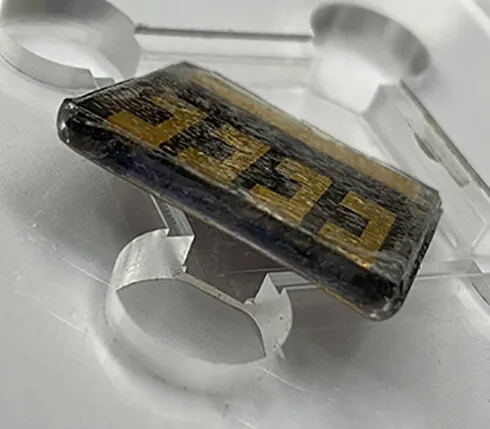Researchers establish lead-absorbing tape to boost viability of rising star in solar energy market
- Researchers at Northern Illinois University and the U.S. Department of Energy's (DOE) National Renewable Energy Laboratory (NREL) in Golden, Colorado, are reporting a possible development that could aid speed commercialization of very appealing perovskite solar cells (PSCs) for use in photovoltaic panels.

In an Oct. 28 short communication to the journal Nature Sustainability, the scientists explain development of a cost-effective Scotch-tape-like film that can be applied to PSCs and also capture 99.9% of dripped lead in the event of solar cell damage.
The industry-ready film would certainly aid alleviate health and safety issues without jeopardizing perovskite solar-cell efficiency or procedure, according to the study group. Testing of the lead-absorbing film included immersing broken cells in water.
" Our functional method mitigates the potential lead-leakage to a degree much safer than the criterion for drinking water," said NIU Chemistry Professor Tao Xu, that co-led the research with Kai Zhu of NREL's National Renewable Energy Laboratory.
" We can conveniently use our lead-absorbing materials to off-the-shelf films currently used to encapsulate silicon-based solar cells at the end of their production, so existing fabrication processes for PSCs would not be interfered with," Xu included. "At the end of PSC production, the films would certainly be laminated to the solar cell."
An emerging class of solar cells, PSCs are taken into consideration rising stars in the field of solar power due to their high-power conversion performance (exceeding 25.5%) as well as low manufacturing costs. However PSCs are not yet commercially available on a widescale basis since key challenges remain, consisting of potential lead-toxicity concerns.
Percentages of water-soluble lead remain to be vital elements to the light-absorbing layer of high performance PSCs, which need to have the ability to endure extreme climate for business viability. Substantial lead leakage from harmed cells would certainly cause health and wellness worries.
To respond to those concerns, the clear tapes make use of lead absorbents made with a basic solar ethylene vinyl acetate (EVA) film and also a pre-laminated layer of lead-absorbing material. The tape can be attached to both sides of fabricated PSCs, as in the typical encapsulation procedure made use of in silicon-based solar cells.
Amongst the examinations utilized to evaluate the longevity of the brand-new innovation, the scientists revealed the film-encapsulated PSCs to outdoor, rooftop conditions for three months. Razor blades and also hammers were used to after that damage the solar cells before they were submerged in water for seven days. The lead-absorbing tapes showed a lead-sequestration efficiency of over 99.9%.
" Perovskite solar cells hold fantastic hope for a more sustainable future," Xu said. "This work uses a convenient and also industry-ready method to diminish the potential lead leakage from lead-containing PSCs, helping with future commercialization of perovskite-based solar technology."
Also read

